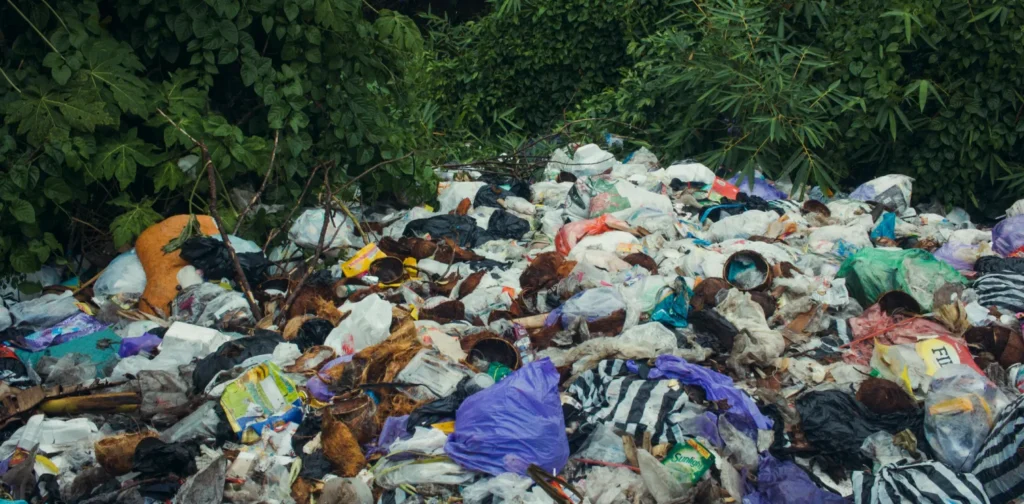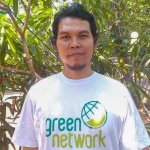Looking into Indonesia’s Plastic Recycling and Collection System

Photo: Finlan Aldan on Unsplash.
Nowadays, almost every product sold in stores uses plastic wrappings. This widespread use, combined with the lack of awareness and accountability, leads to mounting plastic waste issues everywhere, including in Indonesia. In light of environmental sustainability, plastic recycling has been deemed an essential step in reducing and managing waste. How is it done in Indonesia?
A Mounting Issue
According to Indonesia’s national waste management database, the amount of waste generated from 313 districts/cities across the country reached 33.86 million tons in 2024, with 40.18% of it unmanaged. Plastic waste made up 19.76% of that amount.
High reliance on plastic significantly contributes to the soaring amount of plastic waste, with food and beverage packaging as one of the primary sources. Although plastics are practical, weak waste management systems in Indonesia have led to widespread environmental pollution and public health issues.
Plastic takes hundreds of years to decompose. Without proper management, the small particles known as micro- and nanoplastics are contaminating our soil and water.
Worryingly, these plastic particles are now found in fish, drinking water, and even our bodies, raising concerns about the possible health impacts.
State of Plastic Recycling in Indonesia
A study published by the Sustainable Waste Indonesia (SWI) and the Indonesian Plastic Recyclers (IPR) measured the collection and recycling rates of various types of plastic, while mapping the value chain of recyclable plastic waste in Indonesia. Between July and December 2024, the study conducted interviews with more than 700 industry players and collected secondary data validated by experts, and presented an overview of the condition of plastic collection and recycling in Indonesia.
The collection rate of plastic waste for recycling is around 1,238 million tons per year, while plastic waste production reaches 5,543 million tons annually. In other words, the overall plastic recycling rate only reached 22%.
Furthermore, actors in the informal sector, such as waste collectors and waste bank communities, play the most significant role in plastic waste recycling in Indonesia, reaching 80% of all types of recyclable plastic. In comparison, the national recycling industry only contributed to 19% of the national plastic recycling needs.
Strengthening Plastic Waste Management
The study further states that the total economic value of plastic recycling in Indonesia, from collection, aggregation, to recycling, can reach 19 trillion IDR per year.
Unfortunately, despite existing progress, the overall plastic processing in Indonesia still needs to be improved, especially considering the fact that millions of tons of plastic waste remain unmanaged and cannot be recycled. To improve plastic collection and recycling in Indonesia, the study provides the following recommendations:
- Establish mandatory recycling policies and market incentives.
- Build an integrated data system to track the circular economy implementation.
- Increase investment in recycling infrastructure and support for MSMEs.
- Optimize waste collection through public-private collaboration.
- Promote eco-friendly design and standard labeling for recycling.
- Expand the scale of refuse-derived fuel (RDF) for low-value plastics.
“Considering the economic impact and the important role of plastic recycling in waste management, active collaboration across sectors is needed, including consumer education in sorting waste from the source, transparency in national recycling reporting, and technological innovation to encourage plastic recycling,” said Dini Trisyanti, Director of SWI and principal researcher of the study.
Translator: Kresentia Madina
The original version of this article is published in Indonesian at Green Network Asia – Indonesia.

Abul Muamar
Amar is the Manager of Indonesian Digital Publications at Green Network Asia. He holds a Master’s degree in Philosophy from Universitas Gadjah Mada and a Bachelor’s degree in Communication Studies from Universitas Sumatera Utara. He has over ten years of professional experience in journalism as a reporter and editor for several national-level media companies in Indonesia. He is also a writer, editor, and translator with a particular interest in socio-economic and environmental issues.


 Strengthening Resilience amid Growing Dependence on Space Infrastructure
Strengthening Resilience amid Growing Dependence on Space Infrastructure  Indian Gig Workers Push Back Against 10-Minute Delivery Service Strain
Indian Gig Workers Push Back Against 10-Minute Delivery Service Strain  Call for Governance: Grassroots Initiatives Look to Scale Efforts to Conserve Depleting Groundwater
Call for Governance: Grassroots Initiatives Look to Scale Efforts to Conserve Depleting Groundwater  Integrating Environment, Climate Change, and Sustainability Issues into Education Systems
Integrating Environment, Climate Change, and Sustainability Issues into Education Systems  Finally Enforced: Understanding the UN High Seas Treaty
Finally Enforced: Understanding the UN High Seas Treaty  Risks and Opportunities of Submarine Communication Cables for Sustainable Development
Risks and Opportunities of Submarine Communication Cables for Sustainable Development